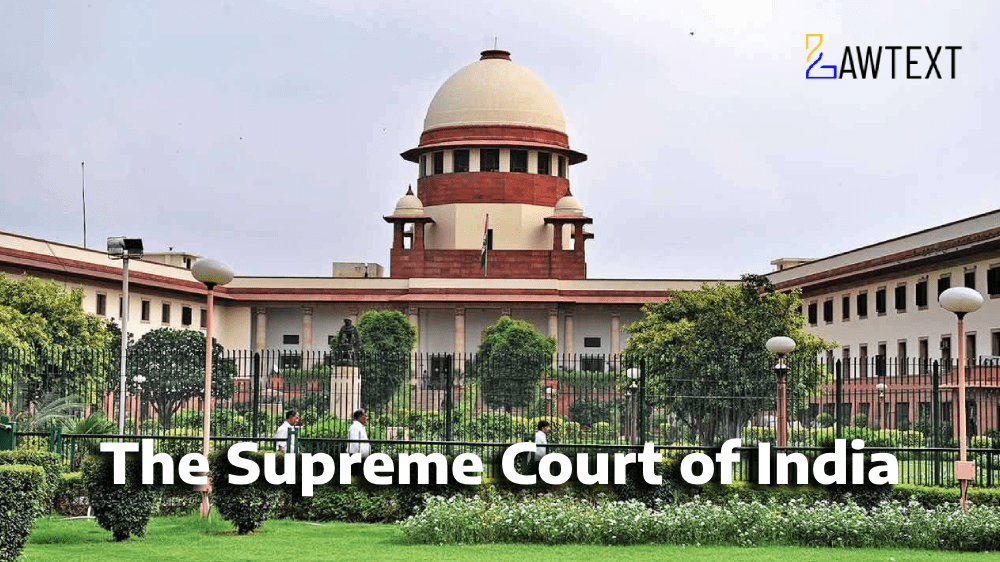

The Supreme Court dismissed the appeals, holding that: The appellants were not entitled to the rebate under the notification dated 30.09.1991, as they had availed power supply after its rescission on 31.03.1995 (Para 19). The principle of promissory estoppel could not be invoked against the State of Goa, as the withdrawal of the rebate was justified by overriding public interest due to financial constraints (Para 27). The demand notices issued under the 2002 Act were valid, and the appellants were liable to refund the rebate benefits (Para 28).
The Supreme Court upheld the High Court’s decision, dismissing the appeals and validating the demand notices for the recovery of rebate benefits. The Court emphasized that public interest overrides promissory estoppel, especially in cases of financial constraints faced by the State.
Constitution of India (COI), Article 226 – Writ Jurisdiction.
Indian Electricity Act, 1910 – Sections 23 and 51-A – Tariff Determination and Rebate.
Goa (Prohibition of Further Payments and Recovery of Rebate Benefits) Act, 2002 – Recovery of Rebate Benefits.
General Clauses Act, 1897 – Section 21 – Rescission of Notifications.
Promissory Estoppel – Public Interest – Res Judicata – Electricity Tariff Rebate – Recovery of Benefits – Notification Rescission – Financial Crunch.
Nature of the Litigation:
The appellants, industrial companies, challenged the demand notices issued by the State of Goa (SoG) for the recovery of 25% rebate on electricity tariffs previously granted under notifications dated 30.09.1991, 15.05.1996, and 01.08.1996. The High Court had dismissed their writ petitions, and the appellants approached the Supreme Court.
Who is Asking the Court and for What Remedy?:
The appellants sought to quash the demand notices and claimed entitlement to the rebate under the notification dated 30.09.1991, arguing that their rights had crystallized upon applying for power supply while the notification was in force.
Reason for Filing the Case:
The appellants contended that they had set up industries in Goa based on the promise of rebate, and the withdrawal of the rebate was arbitrary and violated the principle of promissory estoppel.
What Has Already Been Decided Until Now?:
The High Court, in its earlier judgment in GR Ispat Ltd. v. Chief Electrical Engineer (1999), had held that the rebate was valid for existing industrial units but not for new units after 01.04.1995. The Supreme Court had upheld this decision, and the Goa (Prohibition of Further Payments and Recovery of Rebate Benefits) Act, 2002, was enacted to recover the rebate benefits.
Whether the appellants were entitled to the 25% rebate on electricity tariffs under the notification dated 30.09.1991, despite its rescission on 31.03.1995?
Whether the demand notices issued under the Goa (Prohibition of Further Payments and Recovery of Rebate Benefits) Act, 2002, were valid?
Whether the principle of promissory estoppel could be invoked against the State of Goa in light of overriding public interest?
Appellants’ Arguments:
The appellants claimed that their rights to the rebate crystallized upon applying for power supply while the notification dated 30.09.1991 was in force (Para 10).
They relied on the principle of promissory estoppel, arguing that they had set up industries based on the promise of rebate (Para 10(iii)).
They contended that the rescission of the notification could not have retrospective effect and that the rebate should be granted for the full five-year period (Para 10(iv)).
Respondents’ Arguments:
The respondents argued that the notification dated 30.09.1991 was rescinded on 31.03.1995, and the appellants had availed power supply after this date, making them ineligible for the rebate (Para 6).
They contended that the rebate benefits were granted under the notifications dated 15.05.1996 and 01.08.1996, which were declared void ab initio by the High Court in Manohar Parrikar v. State of Goa (2001) (Para 6).
The respondents emphasized that the 2002 Act was valid and constitutional, and the demand notices were issued in accordance with it (Para 11).
Promissory Estoppel vs. Public Interest:
The principle of promissory estoppel must yield to overriding public interest, especially when the State faces financial constraints (Para 27).
Res Judicata:
The appellants were bound by the earlier decision in GR Ispat Ltd. v. Chief Electrical Engineer (1999), which had attained finality and could not be re-litigated (Para 25).
Validity of the 2002 Act:
The Goa (Prohibition of Further Payments and Recovery of Rebate Benefits) Act, 2002, was valid and constitutional, and the demand notices issued under it were lawful (Para 15).
Citation: 2025 LawText (SC) (2) 143
Case Number: CIVIL APPEAL NOS. 2027-2028 OF 2012 WITH CIVIL APPEAL NO.4556 OF 2012 CIVIL APPEAL NOS.2033-2034 OF 2012 AND CIVIL APPEAL NOS.2031-2032 OF 2012 AND CIVIL APPEAL NOS.2035-2036 OF 2012
Date of Decision: 2025-02-14
Case Title: PUJA FERRO ALLOYS P LTD. VERSUS STATE OF GOA AND ORS.
Before Judge: (DIPANKAR DATTA J. , SANDEEP MEHTA J.)
Appellant: PUJA FERRO ALLOYS P LTD.
Respondent: STATE OF GOA AND ORS.